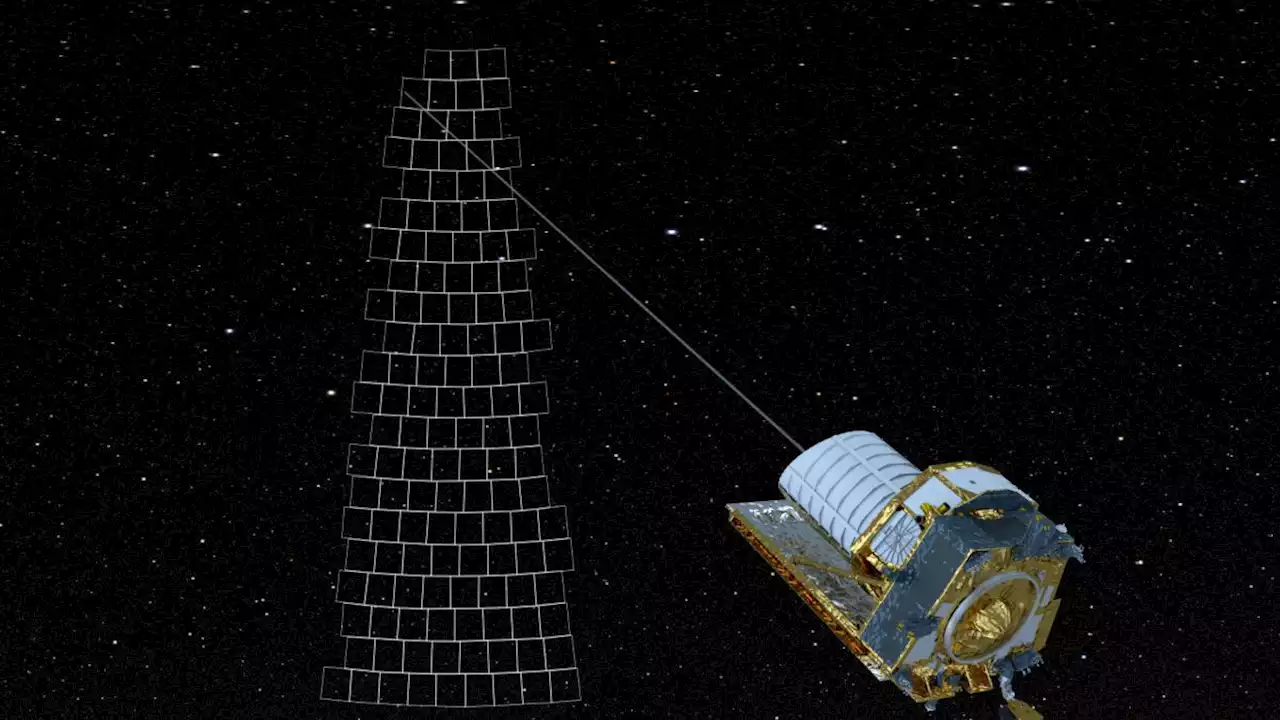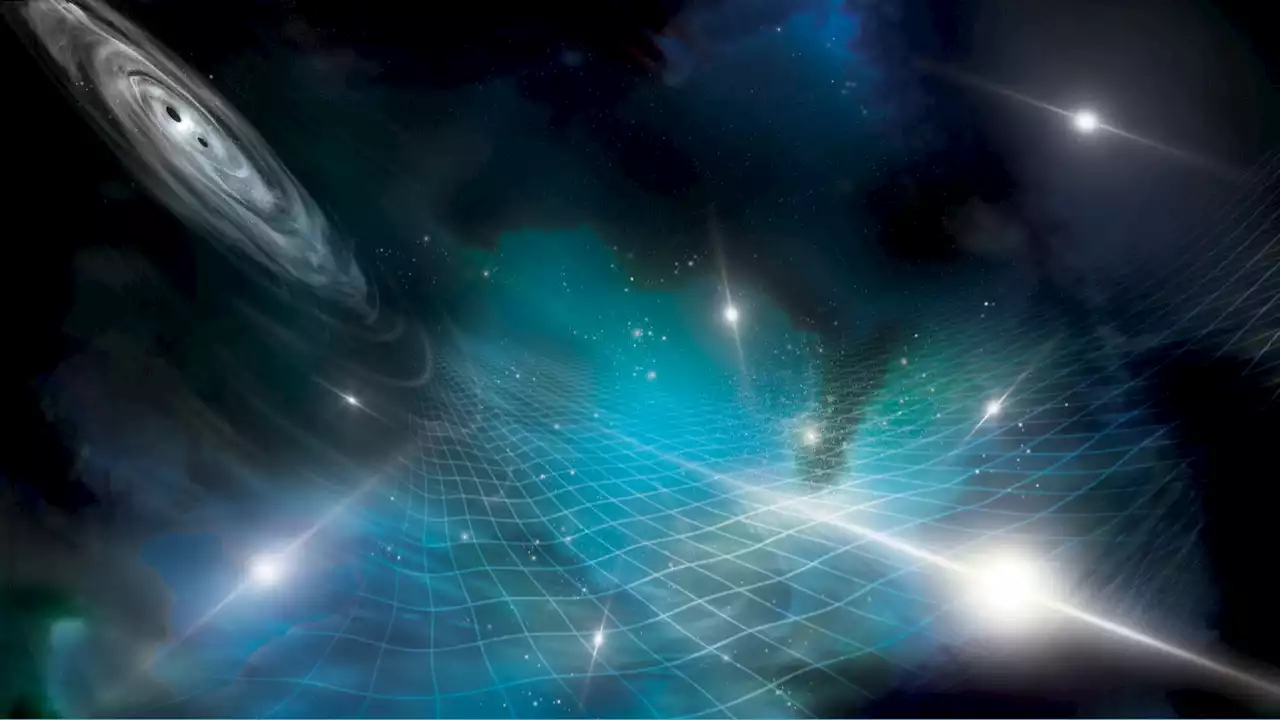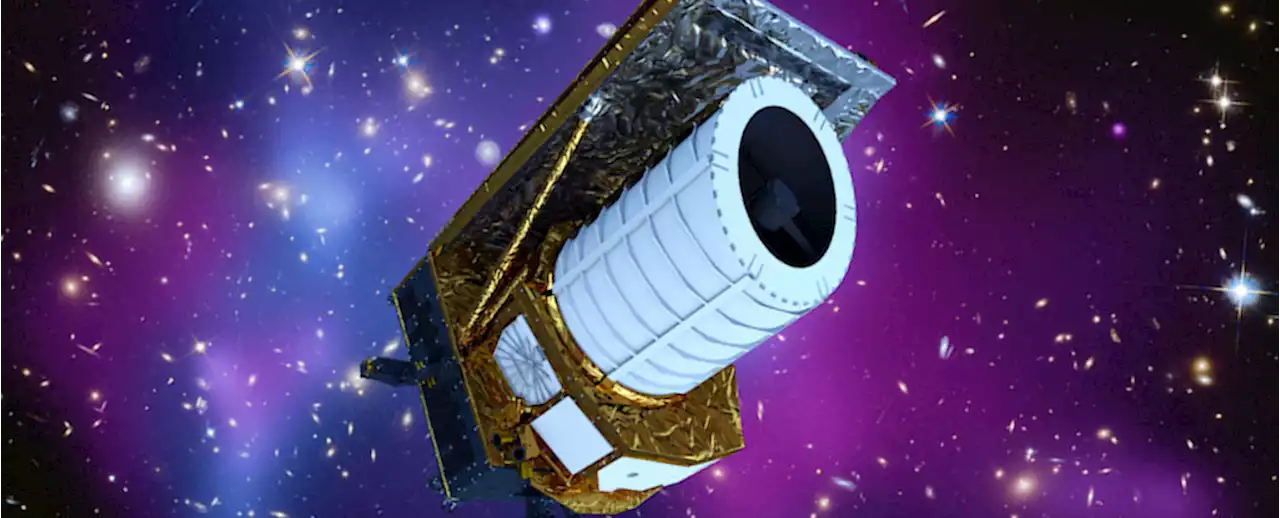Europe's Euclid space telescope is scheduled to blast off Saturday on the first-ever mission aiming to shed light on two of the Universe's greatest mysteries: dark energy and dark matter.
from Cape Canaveral in Florida at 11:11 am local time on a Falcon 9 rocket of the US company SpaceX.frameborder="0″ allow="accelerometer; autoplay; clipboard-write; encrypted-media; gyroscope; picture-in-picture; web-share" allowfullscreen>to launch the mission after Russia pulled its Soyuz rockets in response to sanctions over the war in Ukraine.at a stable hovering spot around 1.5 million kilometres from Earth called the second Lagrangian Point.
Scientists hope to use this information to address what the Euclid project manager Giuseppe Racca calls a"cosmic embarrassment": that 95 percent of the Universe remains unknown to humanity. Euclid, which is 4.7 metres tall and 3.5 metres wide, will use two scientific instruments to map the sky. While this may not reveal the true nature of dark matter, scientists hope it will throw up new clues that will help track it down in the future.
Project scientist Rene Laureijs said that this wider view means Euclid will be able to"surf the sky and find exotic objects" likeBeyond dark energy and matter, Euclid's map of the universe is expected to be a"goldmine for the whole field of astronomy," said Yannick Mellier, head of the Euclid consortium.
United States Latest News, United States Headlines
Similar News:You can also read news stories similar to this one that we have collected from other news sources.
 How will Europe's Euclid space telescope see into the dark universe?Euclid's measurements may put Einstein's famous theory of general relativity into question.
How will Europe's Euclid space telescope see into the dark universe?Euclid's measurements may put Einstein's famous theory of general relativity into question.
Read more »
 Watch Live: SpaceX to Launch Euclid—Europe's Dark Universe TelescopeThe Euclid mission is set to launch on July 1 at 11:11 a.m. ET on board a Falcon 9 rocket.
Watch Live: SpaceX to Launch Euclid—Europe's Dark Universe TelescopeThe Euclid mission is set to launch on July 1 at 11:11 a.m. ET on board a Falcon 9 rocket.
Read more »
![]() Euclid Space Telescope to Shed Light on Mysterious Dark UniverseWe still do not understand 95 percent of all matter in the universe. ESA's Euclid space telescope hopes to change that when it launches this weekend.
Euclid Space Telescope to Shed Light on Mysterious Dark UniverseWe still do not understand 95 percent of all matter in the universe. ESA's Euclid space telescope hopes to change that when it launches this weekend.
Read more »
 Europe’s Euclid Space Telescope Is Launching a New Era in Studies of the ‘Dark Universe’The Euclid mission will probe dark energy and dark matter like never before, setting the stage for an international, multiobservatory push to solve some of the universe’s deepest mysteries
Europe’s Euclid Space Telescope Is Launching a New Era in Studies of the ‘Dark Universe’The Euclid mission will probe dark energy and dark matter like never before, setting the stage for an international, multiobservatory push to solve some of the universe’s deepest mysteries
Read more »
 Gravitational waves produce a background hum across the whole universeAfter decades of searching, astronomers have found a distinctive pattern of light, from spinning stars called pulsars, that suggests huge gravitational waves are creating gentle ripples in space-time across the universe
Gravitational waves produce a background hum across the whole universeAfter decades of searching, astronomers have found a distinctive pattern of light, from spinning stars called pulsars, that suggests huge gravitational waves are creating gentle ripples in space-time across the universe
Read more »
 A newfound gravitational wave ‘hum’ may be from the universe’s biggest black holesScientists reported evidence for a new class of gravitational waves, likely created by merging supermassive black holes.
A newfound gravitational wave ‘hum’ may be from the universe’s biggest black holesScientists reported evidence for a new class of gravitational waves, likely created by merging supermassive black holes.
Read more »
